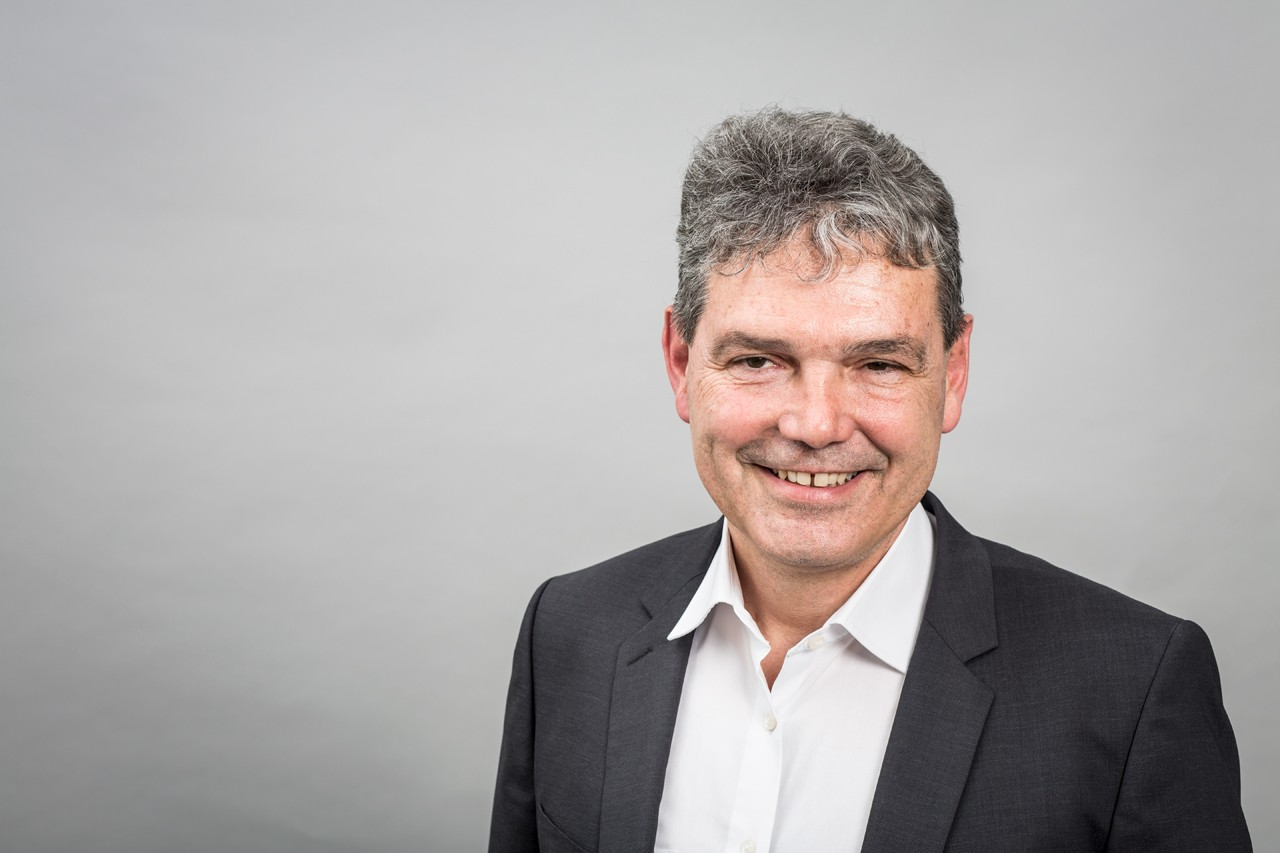
For Andreas Wallnoefer, attending IMD in his early 50s was the catalyst for the biggest pivot of his career. After more than two decades working as a scientist, including 12 years as executive in the R&D leadership at Swiss pharma giant Roche, completing an MBA paved the way for a next career phase to become a private equity investor nurturing and coaching startups and biotech companies. “IMD transformed my perspective,” he says. “It was the catalyst for making a corporate executive become a successful entrepreneur and investor.”
After completing a fellowship at the Leiden University Clinical Research Center in the Netherlands, Wallnoefer, a trained clinical pharmacologist, joined Roche in 1992. In the years that followed, he rose steadily up in the company’s R&D organization.
“Roche is a fantastic company with a very distinct corporate culture that allowed me to learn drug development in all phases and to understand the pharma business,” he says. “I had the opportunity to learn and work with great people and was fortunate enough to be regularly promoted. I started as a clinical scientist running a single study and ended up couple of years later — frankly, rather to my own surprise – as head of clinical research. Subsequently, I went on to other executive roles such as head of Pharma R&D Development and head of the Cardiovascular & Metabolism R&D unit.”
Over 25 years, Wallnoefer worked on dozens of projects at Roche, including scientifically evaluating hundreds of opportunities for in-licensing from biotech. This experience is most valuable in his current role working with biotech entrepreneurs to select investments for his fund. “I had the privilege to be involved as a manager in many projects that reached the market,” he says. For several of these products I was able to make a personal, relevant contribution to their success. For me, it’s a matter of purpose – and being able to contribute to medicines that make a real difference in the lives of many patients makes me most proud.”
A turning point for both Roche and Wallnoefer was the company’s $47bn purchase of US biotech company Genentech in 2009, when he was appointed task force leader overseeing the integration of the two clinical development organizations.
“There was the challenge of bringing together two very different cultures, overcoming a lot of structural challenges and politics with many strong personalities involved – altogether, a very complex story,” he says. “I learned a lot.”
By the time the integration was successfully concluded, Wallnoefer wanted to try something different. “I didn’t want to switch to another big pharma company, so I decided to have a break in my career and think about what to do next,” he says.
“I had known IMD professor Jim Pulcrano for a while. Over the years, he had often suggested I should do an MBA. Of course, being an executive at Roche I never had much time for anything beyond the company’s internal management training courses.”
Pivotal learning
So, in 2014, aged 52, he went back to school to take an Executive MBA at IMD – a decision that proved transformational. “IMD took me from being an R&D expert to become entrepreneur and investor,” says Wallnoefer. “It opened the way from being a scientist to being business-oriented, and to move from working at one large organization to working with many small ones.
“I had spent 20 years at Roche, so I was a corporate animal to the point where it had become my standard for how all industries work. Of course, it’s a fantastic company, and for drug and product development expertise, I would argue it’s the best school there is. The quality of the people and the science is outstanding – and that pushes up standards.”
However, in large organizations, even when you are an executive, the individual decision frame and your direct impact is limited. Decision-making processes are often slow due to the many parties and hierarchies involved.
“While major mistakes are usually spotted and corrected, non-conventional, creative ideas often have a hard time getting accepted. It’s no surprise that 70% of pharma products reaching the market originate in dynamic, far more entrepreneurial biotech companies”
– Andreas Wallnoefer
“If I hadn’t done an MBA, I would have remained a big pharma person. Taking this step was so beneficial in changing my perspective and letting me better understand the whole picture – the economics, the business and entrepreneurial aspects, and the transaction models. Combined with my R&D experience, this gave me the tools to become an effective investor.”
After graduating from IMD, Wallnoefer joined Swiss venture capital firm, BioMedPartners. There, for five years, he oversaw the growth and development of 11 Europe-based start-up and biotech companies, one through to be acquired by a big pharma company and another to a stock market listing.
“Basically, what I did was translate science into a product or medicine, helping them with my R&D expertise, but also with what I learned at IMD,” he says. “As a board member, I could leverage my expertise and track record to help them optimize their development and business strategies while avoiding micro-management.”
While taking his MBA, Wallnoefer continued to advise the boards and management teams of several biotech firms. He was also appointed chair of the Singapore Drug Development Expert Review Panel and made a member of its governing board. His contributions to the panel’s work led to him being awarded Singapore’s Public Service Medal in 2022.
Venturing on
In 2021, he left BioMedPartners to become a partner at Paris-based Jeito Capital, a leading European private equity firm specializing in innovative biopharmaceutical companies. “Jeito has the means and competence to build as a lead investor companies in as sustainable way. We accelerate and extend the portfolio of promising companies for faster clinical read-outs and to enable earlier patient access,” says Wallnoefer. “Jeito moves very dynamically. We can take decisions fast while performing strict technical and financial due diligence.”
Jeito’s first fund raised more than €530 million from top tier limited partners. “It’s great to see we can make a direct and relevant impact for companies and patients while at the same time creating value for investors and society,” he says.
Of course, changing career track in your early 50s is not for everyone, says Wallnoefer. “But if you’re willing to expose yourself to new ideas, and if you come from the school of thinking where you always want to learn and to improve, then why not do an MBA at an advanced stage of your career?
“If you have a good level of knowledge, you have a huge advantage because you can start connecting disciplines across technologies, business, and management. IMD also allowed me to learn from other industries as well as from business innovation trends. This, combined with the extensive network in pharma and biotech but also through IMD, allows me to fully leverage my play for business success. I am very satisfied by how I can work today,” he says.
“You must keep innovating yourself – always learning about what’s coming next so you can stay on top in your field. Then you can combine and connect that with what’s happening in other fields. You can never stand still.”
Wallnoefer has many plans and ideas for the years to come. “Our understanding of the molecular mechanisms of disease, along with the advance of new technologies such as cell and gene therapies and progress in digital science and artificial intelligence, are driving a period of exponential growth. Illnesses we couldn’t treat 10 years ago are now becoming treatable – or even curable. This is super energizing, and of course also offers great business and investment opportunities.”


